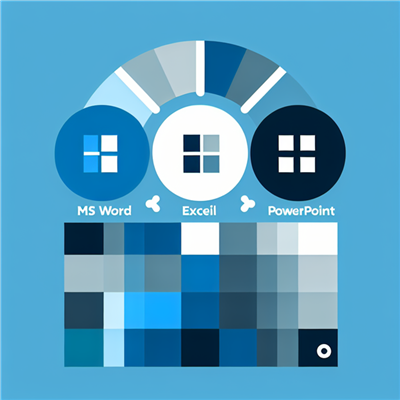
In today’s rapidly evolving tech landscape, DevOps professionals are required to handle complex systems with efficiency, reliability, and scalability. As the demand for continuous integration, continuous deployment (CI/CD), and microservices grows, mastering Kubernetes is becoming a crucial skill. Kubernetes, an open-source platform for automating containerized applications, has become the backbone of modern DevOps processes.
If you’re looking to advance your career in DevOps, obtaining a Kubernetes certification is an excellent way to enhance your skills, demonstrate your expertise, and improve your job prospects. In this blog, we’ll explore how Kubernetes certification training can propel your career, why it's in demand, and the key benefits it offers to DevOps professionals.
The Growing Importance of Kubernetes in DevOps
Kubernetes is a powerful container orchestration platform that automates the deployment, scaling, and management of containerized applications. It enables teams to efficiently manage microservices architectures and ensures that applications are always available, responsive, and able to scale to meet user demands.
As organizations increasingly adopt cloud-native technologies, Kubernetes has become the go-to solution for managing containerized applications at scale. For DevOps professionals, Kubernetes has transformed the way they approach application deployment and system management. However, to effectively leverage Kubernetes and its ecosystem, DevOps professionals need a deep understanding of its components, architecture, and best practices.
What Kubernetes Certification Entails
Kubernetes certification typically focuses on assessing a professional’s ability to deploy, manage, and troubleshoot containerized applications on a Kubernetes platform. The two most widely recognized Kubernetes certifications are:
- Certified Kubernetes Administrator (CKA): This certification focuses on validating your ability to perform the responsibilities of a Kubernetes administrator, such as installing and configuring Kubernetes clusters, managing deployments, troubleshooting issues, and ensuring system reliability.
- Certified Kubernetes Application Developer (CKAD): This certification is aimed at developers who want to demonstrate their skills in deploying and managing applications within a Kubernetes environment. CKAD focuses on application deployment, configuration, and troubleshooting within Kubernetes clusters.
These certifications are highly regarded in the industry as they ensure that professionals have a solid grasp of Kubernetes and can apply it effectively in real-world scenarios.
How Kubernetes Certification Can Propel Your Career in DevOps
1. Increased Job Opportunities
With the widespread adoption of Kubernetes across industries, there is a growing demand for professionals who can manage Kubernetes clusters and optimize containerized applications. Many organizations are actively seeking Kubernetes-certified DevOps engineers, administrators, and application developers to help them streamline their cloud-native applications and infrastructure. By obtaining Kubernetes certification, you position yourself as an expert in a key technology, opening doors to a wide range of job opportunities.
2. Enhanced Skillset and Expertise
Kubernetes certification training covers a wide range of topics that are essential for DevOps professionals, including container orchestration, application deployment, troubleshooting, and monitoring. The training equips you with hands-on experience in managing Kubernetes clusters, as well as knowledge of industry best practices. As a result, you’ll be able to design and implement scalable, highly available applications that meet the needs of modern businesses.
This enhanced skill set not only makes you more proficient in your role but also boosts your confidence in tackling complex DevOps challenges. As organizations increasingly rely on Kubernetes to manage their workloads, professionals with specialized knowledge are in high demand.
3. Validation of Your Kubernetes Expertise
One of the most compelling reasons to pursue Kubernetes certification is the credibility it adds to your professional profile. With Kubernetes being a complex technology, having a recognized certification validates your proficiency and experience in the field. Employers and clients often prioritize candidates with certifications because it assures them that the professional has a proven track record of handling Kubernetes-related tasks effectively.
4. Competitive Edge in the Job Market
In the highly competitive DevOps and cloud computing job market, standing out from the crowd is essential. Kubernetes certification can give you a competitive edge over other candidates, as it demonstrates a higher level of commitment to professional development. It shows that you have invested time and effort into mastering a critical skill and are up-to-date with the latest trends in cloud computing and container orchestration.
5. Better Earning Potential
Kubernetes-certified professionals are often compensated more than their non-certified counterparts. As organizations prioritize DevOps professionals who are skilled in Kubernetes, the demand for certified individuals drives up salary expectations. According to industry reports, Kubernetes-certified professionals typically earn higher salaries due to their ability to manage complex systems and optimize cloud-native applications. Thus, investing in Kubernetes certification can lead to better financial rewards and career growth.
6. Improved Collaboration and Efficiency in Teams
For DevOps teams, Kubernetes is a powerful tool that fosters collaboration between development, operations, and infrastructure teams. Kubernetes certification not only helps you become proficient with the tool but also enhances your ability to communicate and collaborate with other professionals involved in the application lifecycle. This leads to more efficient workflows, faster deployments, and higher-quality applications. As a certified Kubernetes professional, you’ll be able to play a key role in improving team coordination and driving the success of DevOps initiatives.
Key Benefits of Kubernetes Certification
1. Flexibility in Career Roles
Kubernetes certification opens up diverse career paths for DevOps professionals. You can explore roles as a Kubernetes administrator, application developer, cloud engineer, or site reliability engineer (SRE). The skills you acquire through certification are transferable across industries, allowing you to work with organizations of various sizes, from startups to large enterprises.
2. Mastery of Modern Application Architectures
Kubernetes is central to microservices architectures, which are increasingly popular in modern applications. By obtaining Kubernetes certification, you gain a deep understanding of microservices-based architectures, which helps you design and deploy highly scalable, resilient, and maintainable applications. This expertise is crucial in today’s application development ecosystem and will be invaluable as companies continue to adopt cloud-native solutions.
3. Access to a Thriving Kubernetes Community
Kubernetes boasts a vibrant and active community of developers, administrators, and cloud professionals. As a Kubernetes-certified professional, you gain access to this network of experts, which provides opportunities for collaboration, learning, and sharing ideas. Engaging with the Kubernetes community can help you stay up-to-date with the latest developments in the technology and further improve your skills.
Conclusion
Kubernetes certification is a powerful tool for any DevOps professional looking to advance their career and remain competitive in the fast-paced world of cloud computing. It provides a structured learning path, validates your expertise, and equips you with the skills necessary to manage and optimize containerized applications effectively.
By earning Kubernetes certification, you position yourself to take advantage of growing job opportunities, higher salaries, and improved job performance in the dynamic field of DevOps. With the increasing demand for Kubernetes experts, investing in certification training is a smart move that will pay off in the long term.
In the world of DevOps, Kubernetes is a powerful tool that can drive your career forward. Whether you're a seasoned professional or just starting, a Kubernetes certification from a reputed provider like Koenig Solutions can help you stand out in the competitive job market.







COMMENT